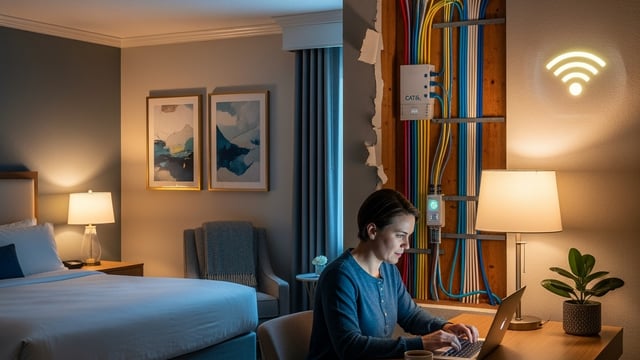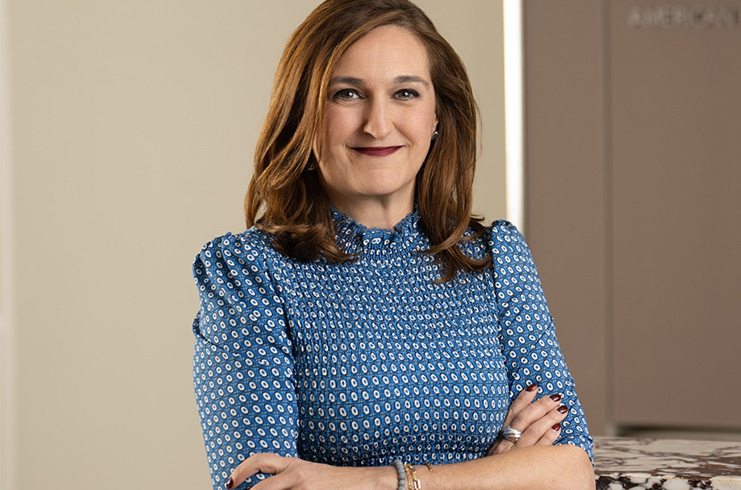
Hospitality technology too often takes a backseat in property planning, budget prioritization, and even guest experience strategy. But Todd Johnstone, CEO of Allbridge, believes the industry can’t afford to treat tech like an afterthought anymore. Drawing on lessons from outside hospitality and five years leading a managed service provider deeply embedded in hotel infrastructure, Johnstone is calling for a shift: one that recognizes technology as a foundational element of the guest journey—and plans for it accordingly.
Hospitality’s Tech Planning Problem
When Todd Johnstone entered the hospitality sector in 2021, he was struck by how far behind hotel technology planning lagged compared to other industries. “We were still treating technology like we did decades ago—phone in a room, TV in a room. You’d run an RFP for each one separately, sometimes ending up with 28 different vendors in a single property,” he said.
This fragmented approach stood in stark contrast to the convergence he’d witnessed in sectors like healthcare and manufacturing, where systems are designed to work together from the ground up. In hospitality, by contrast, “we were trying to layer cloud voice or streaming over networks that were never built for it,” he said. The result? Inconsistent service, finger-pointing among vendors, and ultimately, poor guest experiences.
A Foundation That Works—Quietly
Johnstone’s vision for fixing that isn’t about splashy features. It’s about quietly effective infrastructure—networks that just work, bandwidth that meets demand, and systems that don’t require constant attention. “The best tech is invisible,” he said. “If you’re not hearing about it, that usually means it’s doing its job.”
That mindset underpins how Allbridge approaches its managed services business today. The company now insists on installing and servicing the technology it provides, offering end-to-end solutions that start early in the property design phase. “Technology needs to be in the blueprints right alongside plumbing and HVAC,” he said. “It’s no longer optional. You can’t figure out where to put Wi-Fi after the drywall is up.”
The Guest Knows Best
But Johnstone is also quick to point out that effective infrastructure is only part of the equation. The ultimate measure of a system’s success is whether it makes the guest experience better—and there, he says, hotels have a long way to go.
“We’re building workflows that are good for the hotel, not the guest,” he said. “Why does a guest who’s checked in 30 times still have to stand in line and enter their information again?” Drawing comparisons to airlines and rental car companies that have embraced app-based check-ins and seamless identity recognition, he said, “Hotels should already know who I am when I walk through the door.”
Younger guests, in particular, are losing patience with outdated tech. “The next generation doesn’t tolerate standing in line or clunky handoffs,” Johnstone said. “Legacy processes won’t cut it anymore.”
Skyway and the Single Pane of Glass
That thinking helped shape Skyway, a platform Allbridge has been developing over the past eight years. While Johnstone stresses that Allbridge is not a software company—“We’re service-led, not product-led”—Skyway serves as the digital hub tying together the various systems in a hotel, from back-office integrations to conference room connectivity and real-time diagnostics.
The platform enables remote monitoring and proactive reporting, alerting staff to issues before they escalate. “Why should the guest be the one to tell you your system is down?” he asked. “We’ve got to move to predictive support.”
Today, Skyway is active in over 7,000 properties. But Johnstone sees its value not in the number of installs, but in how it enables a more connected, seamless experience—for both operators and guests.
Innovation Requires Long-Term Thinking
Johnstone is blunt about what’s holding the industry back: too much focus on short-term pricing and not enough long-term strategy. “Innovation gets stifled when you’re chasing RFPs to the bottom,” he said. “We’ve commoditized technology. We’ve minimized it.”
Instead, he believes hotel owners, brands, and tech vendors need to treat infrastructure as a long-term investment—something that provides measurable ROI, improves staff productivity, and enhances the guest experience. “We’ll still compete on cost and total cost of ownership,” he said. “But you have to look beyond the sticker price.”
That’s especially critical as IT responsibilities become more complex—and property-level staff shrink. “We’re hearing it every day: ‘We don’t have the staff. We can’t keep up with the tech. We need someone to take this off our plate,’” Johnstone said. In response, Allbridge has taken over full IT responsibilities for a growing number of boutique and luxury properties.
The Path Forward
Johnstone doesn’t pretend the transition will be easy. The buying cycle is long, the industry is capital-heavy, and legacy thinking runs deep. But he remains optimistic—and sees responsibility as much as opportunity.
“If we’ve got the scale, the team, the financials to do it right, then we have an obligation to lead the way,” he said. “We can’t just play the game as it’s always been played. We have to change the game.”







